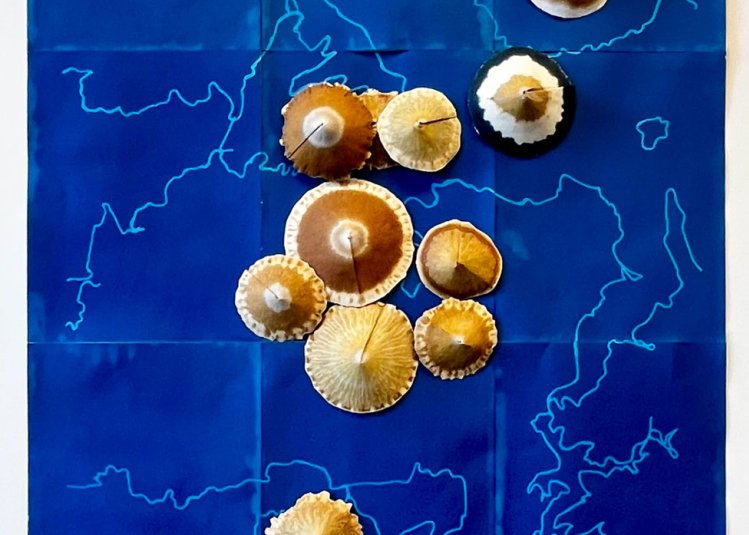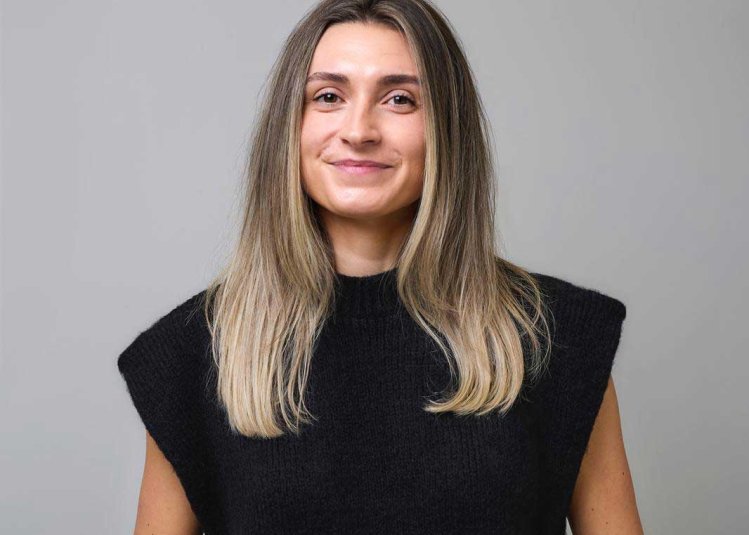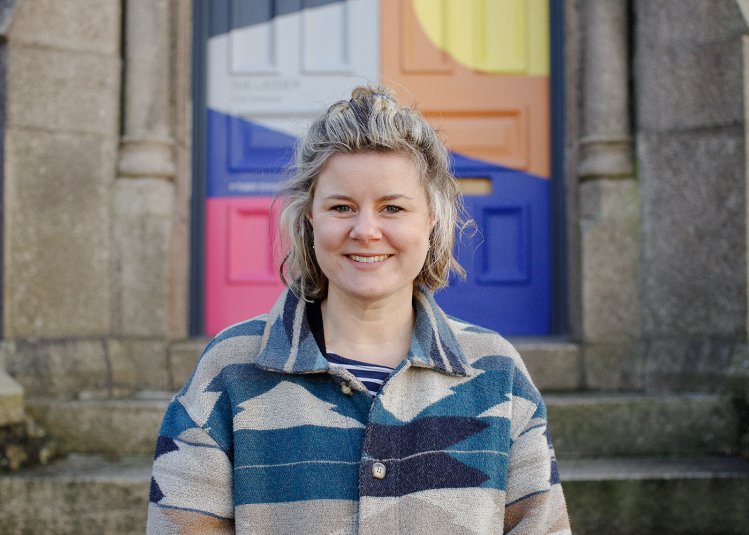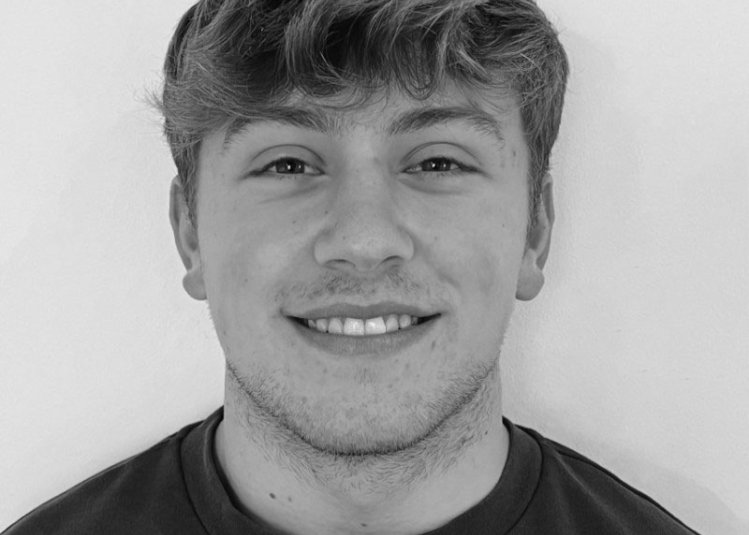Graduate spotlight: a UX Designer with ambition in abundance
01 September 2022
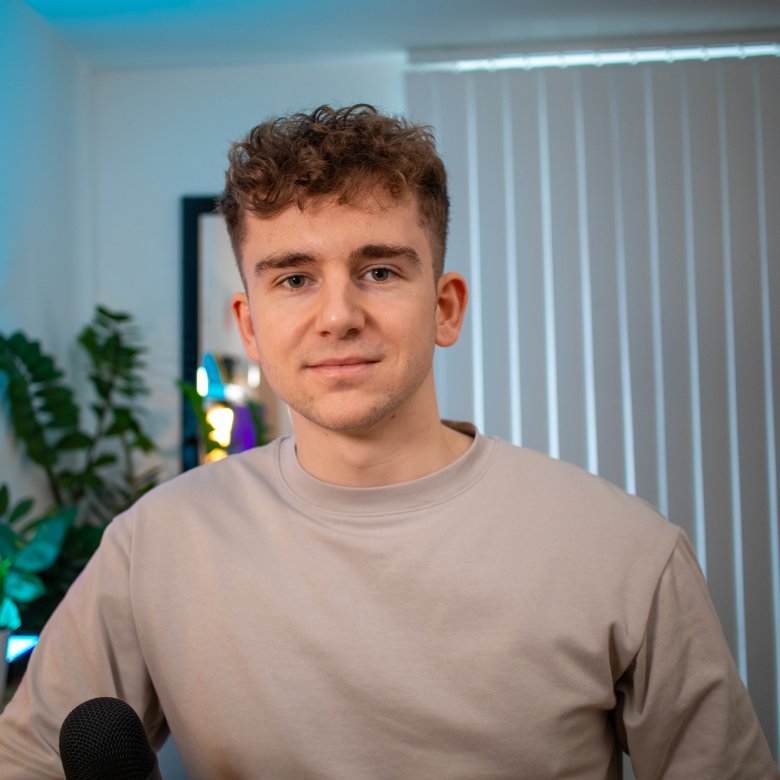
MA User Experience Design (Online) graduate Jack Jenkins is always creating. With a CV full of impressive companies and clients, a YouTube channel focusing on technology and travel, and a long-standing interest in design, we chatted to him about his work, and his experience on the course.
What first got you interested in web design and user experience?
It started quite a long time ago. When I was a teenager, I was very into more traditional graphic design – it was my favourite subject at school. And in my spare time, I got into using different technology focused on design, as well as loving playing video games. When I came to do my undergraduate degree, I chose a subject that was broad within digital media and technologies. As part of that course, one of the modules was human computer interaction and that really piqued my interest. I then started getting more and more into it, and during my first few roles after graduating, I realised that UX design was what I really wanted to focus on.
How did you find out about Falmouth’s MA in User Experience Design, and what made you decide to study it?
I didn’t really plan on doing a postgraduate degree, and certainly not so soon after finishing my undergraduate degree – I only completed my first degree a year before starting the Falmouth master’s. But there are two real reasons. Firstly, I was working as a content and creative specialist at GoDaddy, an internet domain registrar and web hosting company, and that involved a lot of content management system work, when what I really wanted to do was UX design. So, I started applying for UX jobs and not having a directly related degree seemed to be holding me back. Secondly, this was all happening during the summer of 2020, so we’d just had the first Covid-19 lockdown, and things were far from back to normal. I suddenly had a lot more time on my hands. So, it seemed like a good opportunity to steer my career in the direction I wanted it to go.
I was already very familiar with Falmouth as a university. I have family in the area and I know a lot of creative friends who have been there, so I was aware of how well respected it is within the creative industries. As soon as I found out there was an online UX design master’s course at Falmouth, it seemed perfect.
Which module was your favourite and why?
The final major project. It was the most stressful module and putting together the final proposal took a lot of time and research. But at that point you have consumed all the course material and then have the freedom to apply it in any way you want to. It’s common on part-time online courses to have already entered the working world. So, you know that you don’t get lots of opportunities to work on big self-led projects like this, and you value it more.
My project focused on the problem of how young adults in London want to do as many social activities as possible in a post-Covid world while facing the current cost of living crisis. I designed an app that allows users to find affordable activities to do, and to plan out an entire day factoring in costs for the activities themselves, as well as transport and other expenses, so you can properly budget for the day and make changes based on that budget. It aims to make costs for days out as transparent as possible, because when I did the research, people found that using existing methods didn’t work – they'd see one price for an activity online, then arrive and find it costed more, or they’d end up spending more than they’d planned on other things during the day.
Within a year of doing the course I had built up a lot more confidence and felt able to start my first professional UX design role before the course had even finished.
How did you find studying online?
Because I was looking specifically for an online course, I knew what to expect to an extent. I wasn’t expecting to meet up with course colleagues regularly, for example. But it exceeded my expectations in terms of fitting in with my lifestyle at the time. I was living in London for most of the time, and then in Toronto for the final three weeks. I was also working, so when Covid restrictions were lifted, I could go back into the office and continue my studies around that.
I felt like there was the right balance of support. Whenever I had a question, or needed to have a chat with someone, I always received a quick response and was able to arrange something with the relevant tutor or lecturer. At the same time, I was also given the independence to do everything at my own pace and there was no pressure to meet frequent deadlines. The flexible part-time study allowed me to balance busier periods at my job with my studies.
One thing I particularly enjoyed about the course was that being postgraduate level and part-time, a lot of the other people studying were also working in the industry, or came from other related fields, which was a massive benefit. I met a lot of people who had very different, valuable perspectives on things and that was really helpful – lots of interesting conversations were had. And although it's all online, I made some great connections with others on the course.
What was the most valuable thing you learned on the course?
The course content itself. I hadn’t studied UX design before, so many of the methodologies, especially relating to user research, were brand new to me. I have already implemented so much of what I have learnt on the course in my job.
You've worked for some exciting companies, like Disney, as well as being a successful freelancer. What has been the highlight of your career so far?
My current position at Activate Studio, a digital startup studio that designs and develops new digital products. While it's not as well-known as Disney or GoDaddy, starting this position as a product designer just over a year ago has been fantastic. The amount of confidence they’ve put in me, and the level of independence I have on projects, is brilliant. It’s a lot of responsibility at this early stage in my career. Working for those big companies looks cool on a CV but working at a smaller company can be more exciting because you are able to make a bigger impact.
And what are your ambitions for the future?
I’d like to design and launch my own digital product. Maybe it will be something as big as an app or service, or something smaller. That’s definitely an ambition of mine, whether based on a business case or purely for the enjoyment and experience.
You also run a YouTube channel, which includes videos about UX design. What fuels your passion for the industry?
By its very nature, UX design is entirely focused on helping people and making things easier and more accessible for them. So, to be a good UX designer I think you need to be an empathetic person with a desire to help people, and that is what motivates me.
If you could give a prospective UX design student some advice, what would you say?
Have confidence in your work. Quite early on with UX design you can get imposter syndrome. When I first started the master’s course, I was worried that I wasn’t necessarily good enough at what I did. Within a year of doing the course I had built up a lot more confidence and felt able to start my first professional UX design role before the course had even finished. Be confident in your work, always listen to feedback and be proud of what you produce.
